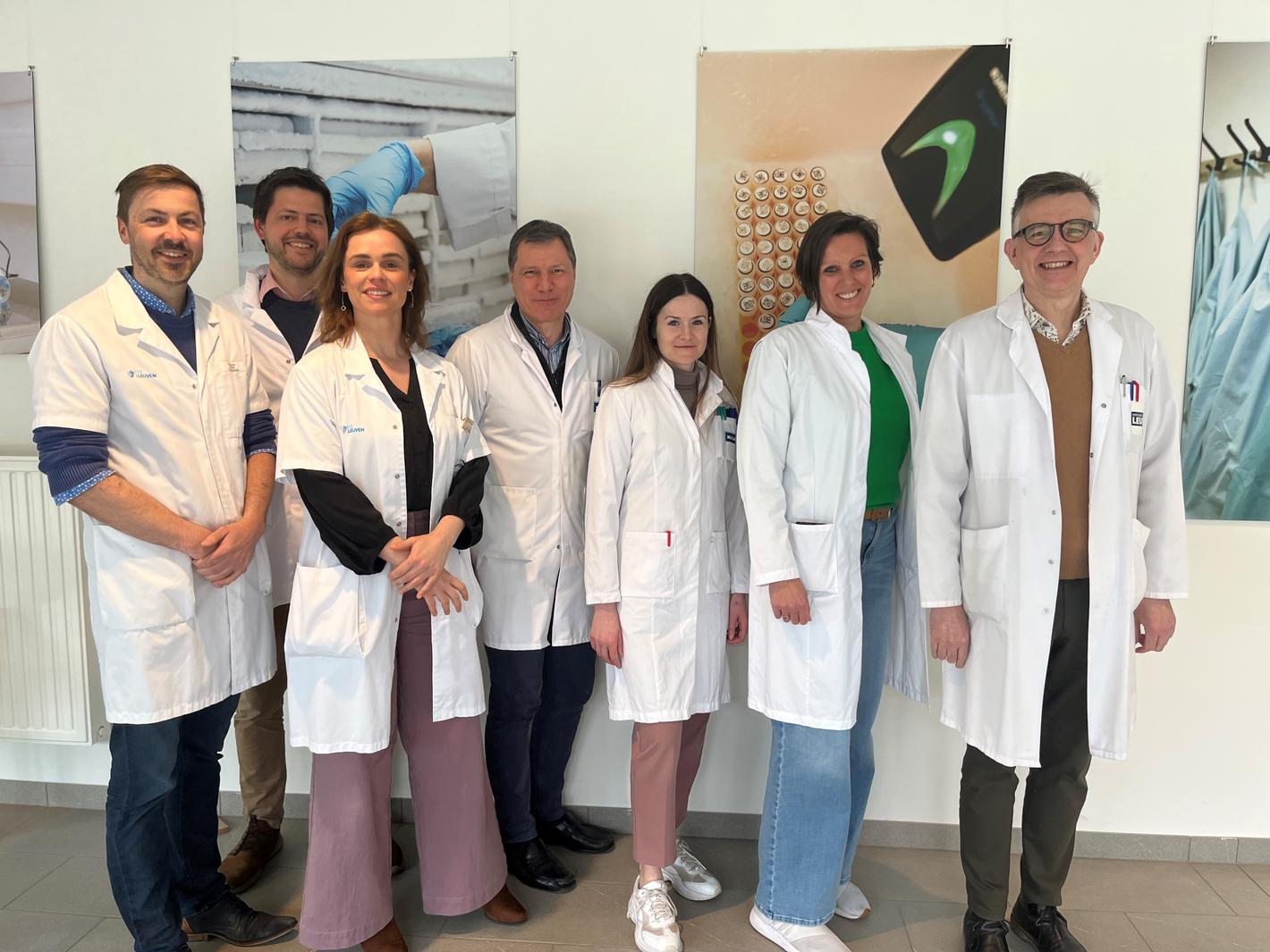Leuven researchers describe in which a genetic mutation causes the increase of another mutation. The article was recently published in the New England Journal of Medicine.
Auto-inflammatory disorders are complex disorders that cause inflammatory reactions and fever as a result of excess activitiy of our immune system. The inflammation can occur spontaneously without an inciting factor, hence the name auto-inflammation. Sometimes the inflammation is due to underlying genetic abnormalities that already result in symptoms from childhood onwards. Very little is known about auto-inflammation in adulthood.
Leuven doctors and researchers have now described a new mechanism to explain the phenomenon. Extensive genetic and immunological research in a patient with an unexplained clinical picture shows that the patient is carrier of a mutation in a gene that can cause auto-inflammation (NLRC4). Surpisingly, this mutation could only be found in a fraction of the cells and occurs in adulthood. Further research showed that the mutant cells continued to increase over the years as a result of a second mutation in TET2. That second mutation proved to be the cause of the increase in mutant cells.

This concept, where a so-called driver (TET2) drives the propagation of another mutation, the so-called passenger (NLRC4), has not been described before in this context. The findings were the start of a successful start of targeted therapy in the patient. The research was performed by the multidisciplinary LeUZis team and KU Leuven.
Prof. dr. Ellen De Langhe, rheumatologist at UZ Leuven: “Thanks to the in-depth review we were able to unravel the underlying genetic cause of the inflammatory disease that plagued our patient for several years. This new insight in her disorder also allowed to finally start targeted therapy. Our findings shed a new light on the origination mechanism of this type of inflammatory diseases in adults. It has important diagnostic and hopefully therapeutic implications. It is a success story for both patient and science.”
Prof. dr. Rik Schrijvers, allergy and clinical immunology UZ Leuven: “It concerns research in one person which we have obviously not been able to extrapolate to other patients yet. It is however the first time we have been able to find a mechanicistic explanation why a change in a cell, that can lead to an inflammatory disease in adulthood, in a sufficiently large number of cells can occur to also cause symptoms. This change in genetic material does not seem to appear by coincidence, but coincided with another genetic mutation. As as result we call this a driver-passenger concept.”
Prof. dr. Eric Legius, geneticist at UZ Leuven: “Above all this research shows what an interdisciplinary collaboration between doctor-researchers and basic researchers within UZ and KU Leuven can achieve, on the condition that the right questions are asked and there is in-depth research. The research was published in The New England Journal of Medicine and will hopefully be an impulse for further multidisciplinary research in this field.”
This change in genetic material does seem to be coincidental. prof. dr. Rik Schrijvers
prof. dr. Rik Schrijvers
The LeUZis cell pools clinical expertise of inflammatory disorders within UZ Leuven and is a collaboration between general internal medicine, rheumatology, nephrology, dermatology, paediatric medicine, respiratory diseases, neurology, en menselijke erfelijkheid.
Read the article in the New England Journal of Medicine here.